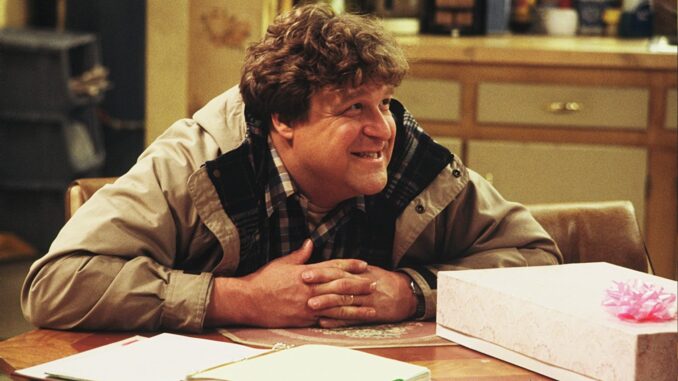
At its core, Roseanne is a masterclass in portraying the intricacies of family relationships. The series delves into the multifaceted dynamics between family members, showcasing the love, tension, and conflict that can exist within a household. Through the interactions of the Conner family—comprised of Roseanne, Dan, their children, and extended family—the show offers a rich narrative that resonates deeply with audiences, reflecting the realities of family life.
The Heart of the Home: Roseanne and Dan
The relationship between Roseanne and Dan serves as the foundation of the series, embodying both the challenges and joys of marriage. Their partnership is characterized by a blend of humor and raw honesty, illustrating the ups and downs that come with long-term commitment. Viewers witness their camaraderie through shared jokes and affectionate banter, but they also see the struggles they face as a couple navigating financial stress, parenting challenges, and personal aspirations.
The tension in their relationship often arises from differing parenting styles and approaches to life’s challenges. While Roseanne tends to be more pragmatic and grounded, Dan often takes a more optimistic view. This contrast leads to authentic conflicts that are relatable to many couples, providing a realistic portrayal of the push-and-pull that exists in marital relationships.
The Parenting Journey
Roseanne skillfully explores the complexities of parenting, showcasing how love and tension coexist in raising children. The Conner children—Becky, Darlene, and DJ—each bring their unique personalities and challenges to the family dynamic. As they navigate adolescence and young adulthood, their interactions with Roseanne and Dan reveal the often tumultuous nature of parent-child relationships.
The show addresses the struggles of parenting teenagers, from issues of identity to the quest for independence. Roseanne and Dan face the challenge of balancing discipline with understanding, often leading to heated discussions and moments of vulnerability. These interactions highlight the emotional rollercoaster of parenting, emphasizing that love can be accompanied by frustration and confusion.
Sibling Rivalries and Bonds
The sibling relationships within the Conner family add another layer of complexity to the narrative. Becky, Darlene, and DJ each have their own distinct personalities, leading to both rivalry and support among them. The show captures the essence of sibling relationships, portraying the love-hate dynamic that is often present in families.
For instance, Darlene’s rebellious spirit often clashes with Becky’s more traditional approach, leading to conflicts that viewers can relate to. Yet, these moments are balanced with instances of solidarity and shared experiences, reinforcing the idea that siblings can be both adversaries and allies. The show’s portrayal of these relationships resonates with audiences who have experienced similar dynamics in their own families.
Extended Family and Community
Roseanne also explores the interactions between the Conners and their extended family and friends, adding depth to the overall narrative. Characters like Aunt Jackie and the various friends that come and go throughout the series contribute to the rich tapestry of family life. These relationships often serve as a mirror to the Conners’ struggles and triumphs, illustrating how family and community are intertwined.
The presence of extended family members often introduces additional layers of tension and humor. Aunt Jackie, portrayed by Laurie Metcalf, brings her own quirks and challenges, creating both comedic moments and heartfelt interactions. The complexity of these relationships highlights the idea that family is not just defined by blood but also by the connections we forge with those around us.
The Balance of Humor and Heart
One of the standout features of Roseanne is its ability to balance humor with heartfelt moments. The series expertly weaves comedic elements into serious discussions and conflicts, allowing viewers to laugh while still engaging with the emotional depth of the characters. This balance makes the show feel authentic and relatable, as it reflects the reality that families often experience a myriad of emotions simultaneously.
The comedic timing and sharp writing create memorable moments that resonate with audiences. Whether it’s a light-hearted family dinner or a serious family meeting, Roseanne captures the essence of family life in all its messy glory.
Conclusion
The complex family dynamics in Roseanne are a testament to the show’s ability to portray the multifaceted nature of relationships. Through the interactions between Roseanne, Dan, their children, and extended family, viewers witness a rich narrative filled with love, tension, and humor. This authenticity resonates deeply with audiences, making Roseanne not just a sitcom, but a reflection of the intricate tapestry of family life. As the series unfolds, it continues to explore the challenges and joys of familial bonds, reminding us that love and conflict often go hand in hand in the journey of family.
